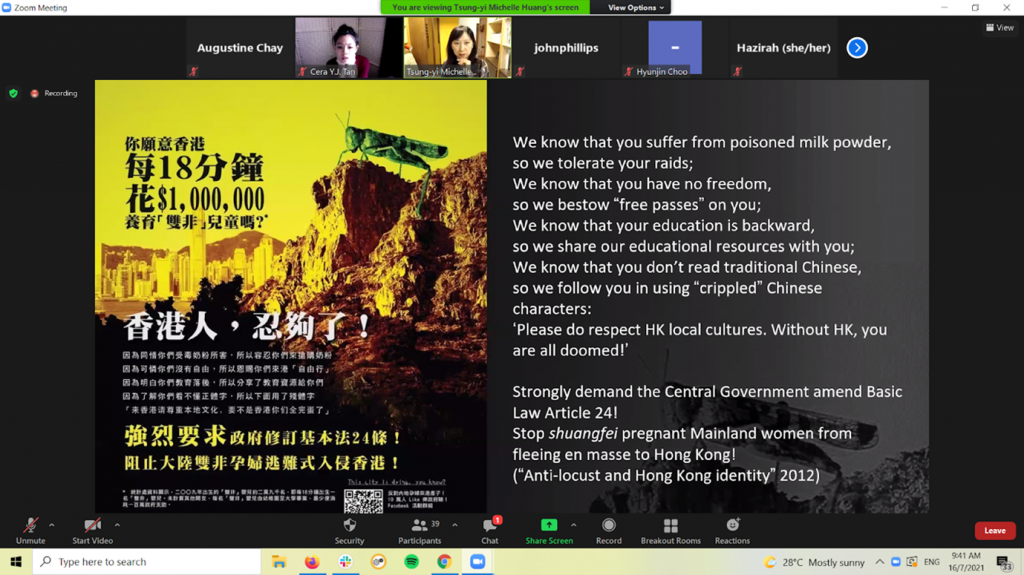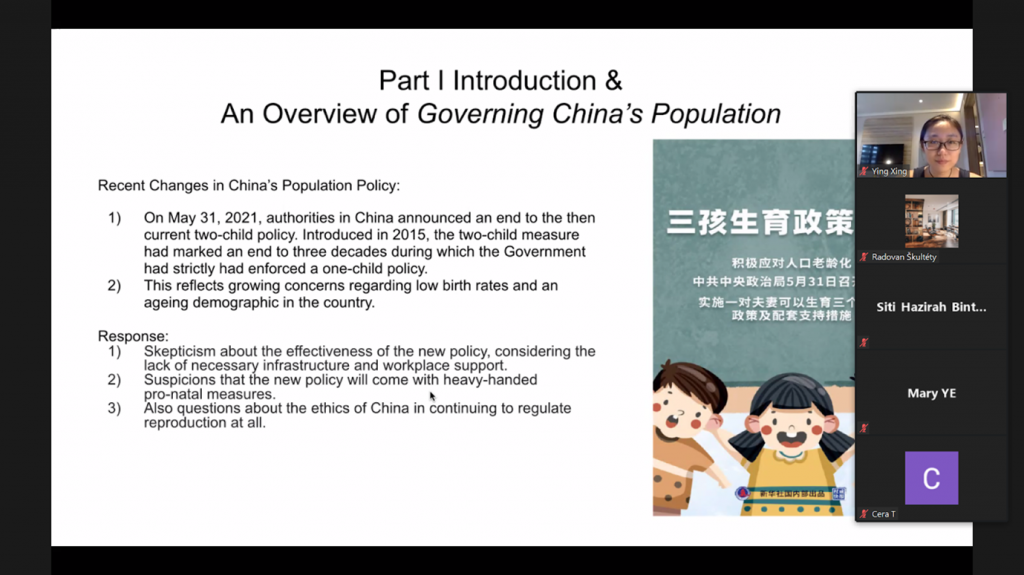BIOPOLITICS AND/IN ASIA WORKSHOP
16 JULY 2021 8AM - 4PM (GMT +8)
“What are we talking about when we invoke biopolitics?” Professor Aihwa Ong addressed the central question of the Biopolitics and/in Asia Workshop in her opening lecture, which drew insights from her recent monograph Fungible Life: Experiment in the Asian City of Life (2016). After discussing the gaps and incongruencies between Foucault’s theory of biopolitics and the typically non-liberal state regimes of Asia, she raised the possibility of a “micro-biopolitics of care” in the post-COVID era.

A slide from Prof. Ong’s presentation
Throughout the day on July 16, 2021, academics and postgraduate students Zooming in from NUS, National Taiwan University, the University of Hong Kong, and the University of California, Santa Barbara approached the workshop’s broad and expansive area of interest — the critical intersection between human biology and politics in relation to the world’s largest continent — from various theoretical, disciplinary, and historical standpoints.
Prof. Ong’s presentation was followed by Prof. Michelle Huang’s presentation on the biopolitical and geopolitical bodies of discourse that pertain to pregnant Mainland women who travel to Hong Kong to access the city’s medical services. While they are officially desired for their economic contributions (to childbirth tourism and the city’s population growth in the long term), their presence has also created a stigmatising “locust imaginary” in mainstream and online discursive spaces.

A screenshot of Prof. Huang’s presentation
After a short break, three postgraduate students each presented an inquiry of cultural texts from different historical contexts. Md Firoz Mahmud Ahsan (HKU) examined how the perilous positionality of the Biharis are represented in two novels: Aquila Ismail’s Of Martyrs and Marigolds (2012) and Ruby Zaman’s Invisible Lines (2011). Gloria Yan Dou (HKU) explored the intersections of language, biopolitics, and neoliberal ideology in the product descriptions written by Hong Kong-based Carousel sellers. Finally, Koh Yee Cheng (NUS) recuperated the cultural history of Theatre Ox (a now-defunct Singaporean theatre company) and illuminated how its performances and aesthetic philosophy negotiated with the advent of national biopolitics.
The workshop ended with two seminars which were held concurrently. Participants either discussed the cultural politics of the People’s Republic of China’s birth control policies in a seminar coordinated by Yawen Li (NUS), Ying Xing (HKU), and Yiming Ma (UCSB) — or examined the currency of the interrelated words “restriction” and “becoming” in A/P John W. P. Phillip’s “Restrictions in Biopolitics: Asian Viewpoints” seminar.

A screenshot from the “Cultural Politics of Birth Control
Methods in Contemporary China” seminar
The Biopolitics and/in Asia Workshop was jointly organised by the NUS Department of English Language and Literature and the Coalition of English Departments in Asia (COEDA). The organisers would like to thank the ELL Department, in particular the HOD Professor Michelle Lazar, for the support and funding provided to make the workshop possible. Many thanks, also, to all speakers, presenters, seminar coordinators, and participants. A final thank you to ELL faculty members Dr Tania Roy, who served as the respondent to the paper presentations; and A/P Anne Thell who facilitated communications with COEDA.
The recordings for the plenary talks and A/P John Phillips’s seminar may be found below.
Written by Augustine Chay and Cera Y.J. Tan

